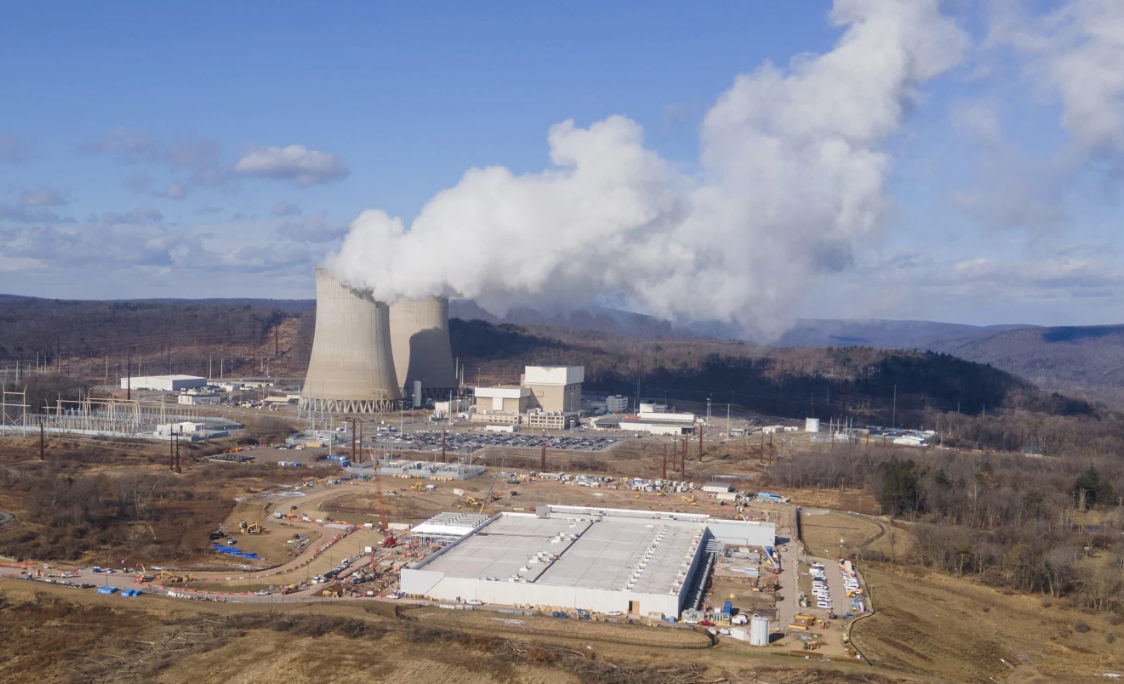Amazon announced Monday it will invest $20 billion to build two data center complexes in Pennsylvania, including one located next to a nuclear power plant that has drawn federal attention due to its unique direct connection to the plant’s power supply.
Kevin Miller, vice president of global data centers at Amazon Web Services, shared that the second data center will be constructed just north of Philadelphia. The first is being built beside the Susquehanna nuclear power plant in northeastern Pennsylvania, while the other will be situated at the Keystone Trade Center logistics campus in Fairless Hills, on land that used to be a U.S. Steel mill.
At a press event near the power plant, Pennsylvania Governor Josh Shapiro described the investment as the largest private sector commitment in the state’s history. He emphasized that this announcement marks only the beginning, noting ongoing collaborations between his administration and Amazon on additional data center projects within Pennsylvania.
While critics argue that data centers generate relatively few permanent jobs and offer limited long-term employment growth, supporters highlight the significant construction jobs created during the build phase, the large spending with local vendors, and the substantial tax revenue generated for local governments.
Shapiro highlighted the benefits of the projects, including job opportunities for construction workers, technology positions for local college graduates, and millions of dollars in property taxes supporting schools and communities.
“For too long, talent in Pennsylvania has been overlooked and communities have been left behind,” Shapiro said. “Now is the time to rebuild and invest in these areas. This investment is a step toward reversing that trend.”
Details about taxpayer-funded incentives for Amazon’s data center projects were not disclosed by either the state government or Amazon. Such incentives are common in data center deals as states compete to attract large investments. However, Amazon is expected to qualify for Pennsylvania’s sales tax exemption on equipment purchases, a standard benefit many states offer to remain competitive.
This announcement adds to the billions Big Tech is investing in Pennsylvania’s data center sector. Since the beginning of 2024, Amazon has committed roughly $10 billion each to data center projects in Mississippi, Indiana, Ohio, and North Carolina, as the company expands its infrastructure to meet the rising demand for artificial intelligence and cloud computing services.
The surge in cloud computing and AI has driven the need for more data centers, which require significant power to operate servers, storage, networking devices, and cooling systems.
Last year, Talen Energy, the majority owner of the Susquehanna nuclear power plant, sold a data center to Amazon for $650 million. This deal includes plans to provide 960 megawatts of power—about 40% of the plant’s output, enough electricity for over half a million homes.
However, the “behind the meter” arrangement between Talen and Amazon, which allows Amazon’s data center to connect directly to the power plant, has been delayed by the Federal Energy Regulatory Commission (FERC). This is the first case of its kind before the agency and raises concerns about whether diverting power to large users could leave less available for others and whether it is fair to exempt major consumers from contributing to grid costs.
For technology companies, directly connecting data centers to power plants can significantly speed up development and avoid the challenges of connecting through an often congested power grid.
It remains uncertain when FERC will resolve the issue, leaving the regulatory status of this and similar deals uncertain.
In Pennsylvania, Microsoft recently announced a 20-year agreement to power its data centers in four states using energy from the former Three Mile Island nuclear power plant, which its owner plans to restart.
Meanwhile, owners of Pennsylvania’s former largest coal-fired power plant plan to transform the site into a $10 billion natural gas-powered data center campus.














